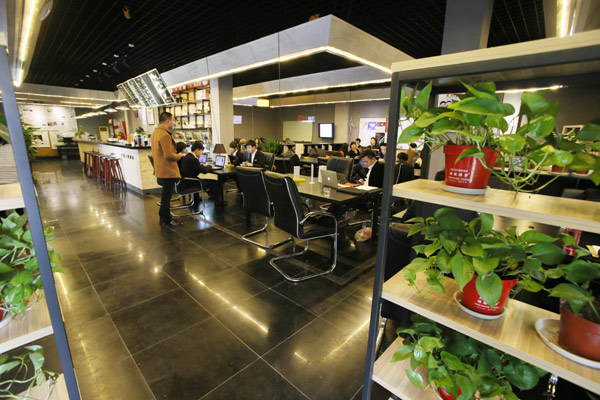Startups upstage SOEs for jobs
(Agencies) Updated: 2015-05-01 07:30Entrepreneurship key motivator in shifting emphasis toward employment, say experts
For decades, the most coveted jobs in China have been in government, with their steady income, job security and power. Now people like Nymar Li are changing that perception by leaving government jobs to seek their fortunes at startups.
Li became the pride of his family when he landed a job in the customs bureau right out of college a decade ago. Then last year, he gave up the security of employment for life to join an e-commerce startup working in Hangzhou, following the path of Jack Ma who helped found Alibaba Group Holding Ltd in the same city and then pulled off the largest initial public offering ever.
It is a sign of a broader shift in China as the economy slows and state-backed companies falter. People like Ma are inspiring a generation to become entrepreneurs and seek their fortune in the private sector, just as a crackdown on corruption makes it less prestigious and lucrative to be a civil servant.
"The brightest of our generation no longer yearn to be in the system," said the 34-year-old Li. "As long as you have the caliber, there's a real possibility you can make it in the market."
The number of people taking the civil entrance exam fell to a record low, down 7.5 percent to 1.4 million, according to the State-run People's Daily.
Liu Yuan, an investment manager at ZhenFund, sees the shift through the startups he backs. Last year, the Beijing-based angel investor pumped $70 million into 100 startups, with about half of his most recent investments founded by college graduates born after 1985.
"Kids these days no longer find going into government on top of their list," said the 26-year-old Liu. "Setting up their own startups is what they have their eyes on."
New businesses are sprouting at a record pace, with China's version of Silicon Valley birthing 49 startups a day last year. More than 1,000 organizations are investing in startups with capital exceeding 350 billion yuan ($56 billion), according to the ministry of science and technology.
"There is a ton of money looking for places to go," said Michael Pettis, a finance professor at the Guanghua School of Management at Peking University. "It is not surprising that a lot of startup companies want to take advantage of this."
Nymar Li decided on a path into civil service in part because of his parents, who both worked at State-owned enterprises. After graduating from university in Zhejiang province in 2003 he sat for the government entrance exam and joined the customs bureau.
"As someone who was just normal, went to school normally and actually became a civil servant without needing my parents to call in any favor, it made my entire family very happy," said Li. "They felt I was on a right track."
- China adjusts subsidy policy to help farmers
- Bullish stock market echoes reform optimism, calls for caution
- Chinese investor in talks to take over Malaga
- Ironing out the creases in China' s first laundry app
- China reforms resource tax for rare earths
- New drilling rig delivered in Shandong
- Express delivery services booming in China
- China warns steel bar makers of EU anti-dumping probe
















